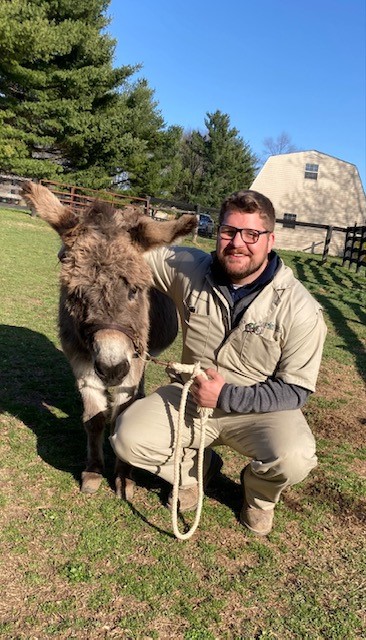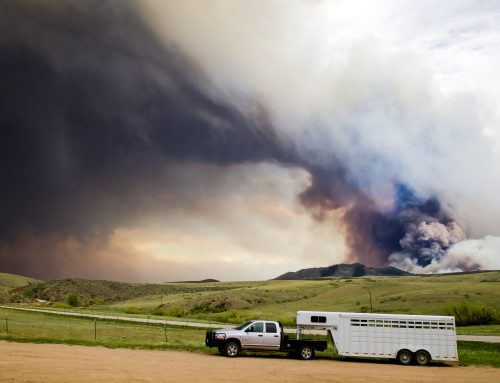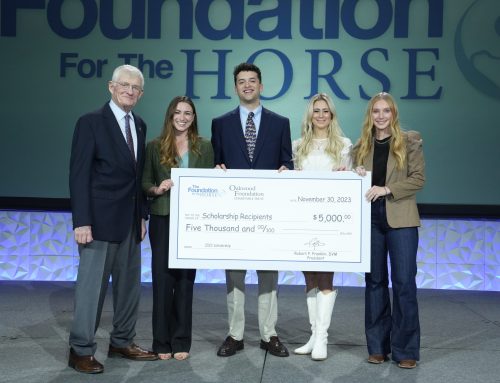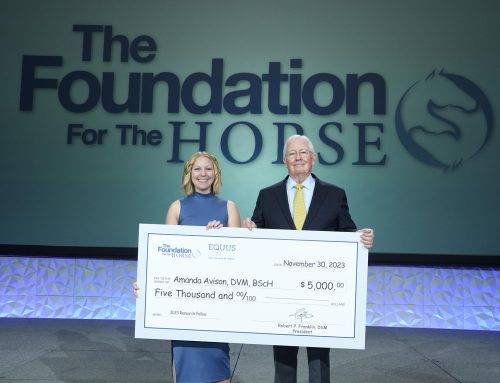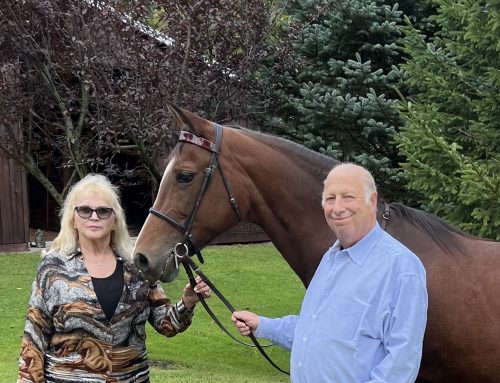Rood & Riddle Equine Hospital in Lexington, Ky., had only been a part of the Vet Direct Safety Net program for a few weeks in early 2022 when a call came in about a donkey that needed immediate help.
Dr. David Alexander, a second-year intern with the hospital, headed out to see how he could help. When he arrived, he found a Miniature Mediterranean Donkey named “Perk” had been attacked by a pack of dogs, receiving significant trauma and puncture wounds to his inguinal area and scrotum.
“He was missing part of his scrotum and was presenting with an exposed testicle,” Dr. Alexander said.
In order to save Perk, Dr. Alexander performed a castration with scrotal ablation and flushed all of his puncture and bite wounds. “The donkey would have likely had to have been euthanized without the help from this program,” he said. Instead, Perk is healing well and doing great, he reports.
Designed to reduce the number of horses relinquished to rescues or sent to auction, the Vet Direct program reimburses veterinarians up to $600 per horse when services are rendered for emergency stabilization procedures, euthanasia or disposal to owners who are unable to pay for them.
Dr. Alexander and a few of his Rood & Riddle colleagues were onboarded in a group, and information on the program was disseminated to all of the more than 60 vets across the practice’s three divisions in Lexington, Ky., Saratoga Springs, N.Y., and Wellington, Fla.
Dr. Alexander encourages AAEP-member veterinarians to get onboarded into the program even if they don’t have a client who comes to mind immediately who may be able to use it. Enrollment is as easy as filling out the initial form and online questionnaire. “This is a great program that has been super helpful, and I’ve been able to use it twice,” he said. “You never know when you’ll need it!”
In addition to assisting equine owners, the Vet Direct program eases the minds of veterinarians, allowing them to care for horses in immediate need without the stress of offering free services.
“It’s a great option for us to provide care to patients where the only barrier we face is the owner’s financial constraints,” Dr. Alexander said. “It’s very challenging to have the knowledge to help and treat patients, but not be able to [do so] due to the owner’s financial constraints. This program alleviates that.”
If you are an AAEP-member veterinarian in the U.S. with clients who potentially could struggle to pay for veterinary care, put yourself in a position to help by enrolling in Vet Direct Safety Net. If you are a horse owner or enthusiast who may know someone who could use a little help to care for their horse so they may keep it, please connect them with an AAEP member. Sign up or learn more at aaep.org/horse-owners/vet-direct-safety-net or contacting Sue Stivers at sstivers@aaep.org.

